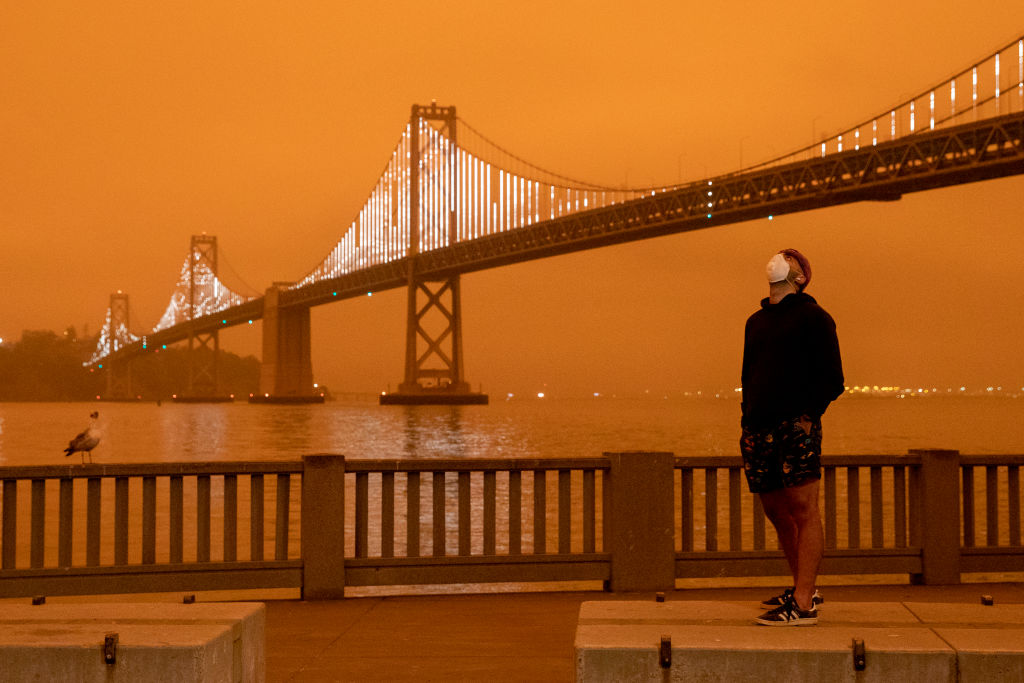Google searches related to “climate anxiety” are at a record high after steadily increasing over the past five years, the search giant said in an email to TIME.
Searches worldwide related to “climate anxiety” or “eco-anxiety” increased by 4,590% from 2018 to 2023, according to the company’s data. The two most commonly Googled questions were “What is eco anxiety?” and “How to deal with climate anxiety?”
[time-brightcove not-tgx=”true”]
Searches in English on the topic were 27 times higher in the first 10 months of 2023 than during the same time period in 2017, according to the BBC, which reported the data on Nov. 22. In Portuguese, searches skyrocketed by 73 times during that time.
The analysis didn’t measure the total volume of searches, but looked at a sample to identify the popularity of a trend over time around the world, and adjusted data to compare countries with different population sizes.
Climate, or eco, anxiety is loosely defined as a “chronic fear of environmental doom,” mental distress or anxiety associated with worsening environment conditions or negative emotions related to climate change.
Awareness of climate anxiety has been increasing in recent years, as extreme weather has swept across the U.S. and wildfires have turned skies orange from California to New York. News website Grist reported that Google searches for the term rose 565 percent from 2020 to 2021.
Psychologists have long acknowledged the mental health impacts of climate change and have offered resources and tips on how to cope. In an essay for TIME, Susan Clayton, a professor of psychology and environmental studies at the College of Wooster, argued that climate anxiety can threaten one’s ability to function, and recommended acknowledging and sharing negative emotions with others, while balancing negativity with positive feelings and breaks from the news, if possible.
Existential fear around climate change has led European activists such as U.K. group Just Stop Oil, which says that human-induced climate change “will destroy human civilisation unless emergency action is taken,” to stage protest actions, resulting in mass arrests recently.
The BBC analyzed publicly-available Google Trends’ data to find that search trends for eco-anxiety were highest in Nordic countries, with Finland, Sweden, Denmark and Norway accounting for more than 40% of searches. The report noted searches were likely higher among speakers of languages who Google more often and have a greater awareness of climate anxiety, not necessarily reflecting the most greatly impacted countries.
Data shows that Earth’s poorest populations bear the brunt of climate change.
The world’s 46 least developed countries, home to about 1.1 billion people, accounted for less than 4% of total global greenhouse gas emissions in 2019, the United Nations reported in 2022. But in the past 50 years, these countries suffered 69% of worldwide deaths caused by climate-related disasters, the U.N. said.
The U.K. ranked 10th among countries in the world for climate anxiety searches in the last five years, while the U.S. ranked 16th, according to Google.
About two-thirds of Americans said they are at least “somewhat worried” about global warming in the Yale Program on Climate Change Communication’s latest report in spring 2023. That included 30% who are “very worried,” up from 25% in 2021.
In this year’s study, 13% of Americans expressed the belief that it is “already too late to do anything about global warming.”

